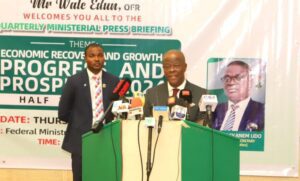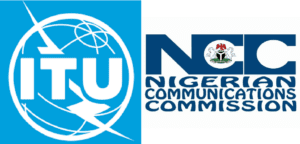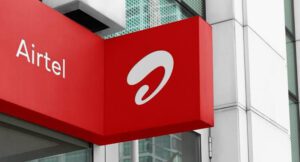


Financial stability: CPPE gives nod to CBN’s recapitalisation plan to safeguard depositors’ funds
…Says inflationary challenges drive endorsement of bank recapitalisation
… Non-Performing loans remain below threshold, reflecting positive bank performance — CBN
…Expresses concern over high interest rate spreads in Nigerian banking system
By Sodiq Adelakun
The Centre for the Promotion of Private Enterprise (CPPE) has thrown its weight behind the recent initiative by the Central Bank of Nigeria (CBN) to recapitalise banks in the country.
The CEO of CPPE, Dr. Muda Yusuf, affirmed this endorsement in a statement released on Monday.
He emphasised the critical role of adequate capitalisation in ensuring the efficiency and stability of the financial system.
Dr. Yusuf highlighted that recapitalisation aims to safeguard depositors’ funds, fortify the stability of the financial sector, enhance the resilience of banks, and position them to foster economic growth.
Last Thursday, the CBN introduced new minimum capital requirements for banks. According to a circular signed by the acting Director of Corporate Communications at CBN, Sidi Ali, commercial banks with international authorisation are now mandated to maintain a minimum capital base of N500 billion.
Additionally, banks with national authorisation must adhere to a minimum capital base of N200 billion, while those with regional authorisation face a requirement of N50 billion.
Ali noted that the new minimum capital base for commercial banks with national authorisation is now N200 billion, while the new requirement for those with regional authorisation is N50 billion.
She also disclosed that the new minimum capital for merchant banks would be N50 billion, while the new requirements for non-interest banks with national and regional authorisations are N20 billion and N10 billion, respectively.
Capital adequacy measures the capacity of a bank to meet its financial obligations and absorb any shocks related to losses.
It measures the financial soundness of a bank, ensures the safety of depositors’ funds, deepens financial intermediation, and enhances the capacity to support economic growth through the funding of investments.
Yusuf stated that the last major review of minimum capital requirements was done in 2005. That was under President Olusegun Obasanjo, with Prof Charles Soludo as CBN Governor.
But since then, the value of the minimum capital has been significantly eroded by inflation.
For instance, the official exchange rate in 2005 was about N130 to the dollar. This meant that the N25 billion for a national bank, for instance, was equivalent to $192m. The naira equivalent today is about N250 billion.
For the international banking licence, it would be about $384m, an equivalent of about N500 billion.
He said, “The reality is that the capitalisation requirement has not increased materially in real terms, that is when adjusted for inflation.
“The real issue is that inflation had weakened the value of money over time, which makes recapitalisation imperative and inevitable.”
…Non-Performing loans remain below threshold, reflecting positive bank performance — CBN
Reports from the CBN affirm the robustness of Nigerian banks, showcasing favorable soundness indicators. According to data as of January, the industry’s Capital Adequacy Ratio stood at 13.7 percent, surpassing the prudential threshold of 10 percent.
Additionally, the Non-Performing Loans (NPL) ratio, measuring 4.81 percent of total loan assets, remained below the prudential threshold of 5 percent, indicating positive performance. Furthermore, the liquidity ratio, at 40.14 percent, exceeded the prudential minimum of 30 percent, reflecting a healthy liquidity position.
Yusuf acknowledged the soundness of Nigerian banks based on these metrics. However, he emphasised the importance for regulatory authorities to sustain and enhance this stability, particularly in light of recent macroeconomic challenges.
Yusuf said, “Based on the financial soundness metrics, Nigeria banks are adjudged to be generally healthy. However, this does not diminish the need for regulatory authority to ensure that this soundness and stability is preserved and improved upon, especially because of the recent macroeconomic headwinds.
“This, perhaps, is what informed the current policy of the CBN to review the capital base.”
Commending the CBN, Yusuf said the proposed recapitalisation of banks should be done in a manner that would minimise shocks and disruptions to the banking system and the economy at large.
“We commend the CBN for giving a timeline of 24 months for banks to comply. This would minimise disruptions and dislocations in the financial system. It would also ensure a smooth transition to the new capitalisation regime for banks.
“With the current approach and timeline given by the CBN, the risk of banks collapse or hasty mergers and acquisitions should be minimised. It is also laudable that the current categorization of banks with differential capital requirements has been maintained – international, national, and regional. This is necessary to allow for inclusion and reduce the risk of dominance of the banking space by a few big banks,” he said.
He, however, stated that it is important for the CBN to assure depositors of the safety of their funds in the banking system, irrespective of the current level of capitalisations of banks.
“It is important to sustain the confidence of the banking public about the soundness and stability of the Nigerian banking system, especially because of the perception and vulnerable risks of smaller banks.
“We implore the CBN to ensure minimum risk to shareholders and employees in the banking system, across board. It is also imperative to guide against elevated concentration risks and the deepening of oligopolistic structure in the banking system,” he added.
…CPPE expresses concern over high interest rate spreads in Nigerian banking system
Meanwhile, CPPE raised alarms over the substantial interest rate spreads observed within the Nigerian banking sector. According to the CPPE executive, there are significant disparities between deposit and lending rates, with spreads sometimes reaching as high as 20 percent, ranking among the highest globally.
Moreover, it was highlighted that the tenure of funds within the banking system tends to be exceedingly short, with over 80 percent of funds having a tenure of one year or less.
The CPPE remains steadfast in its commitment to delivering quality news and information to its esteemed readership on a consistent basis.
To further support its research efforts, the CPPE appeals for generous donations from its audience to sustain its mission of providing invaluable insights into Nigeria’s financial landscape.



